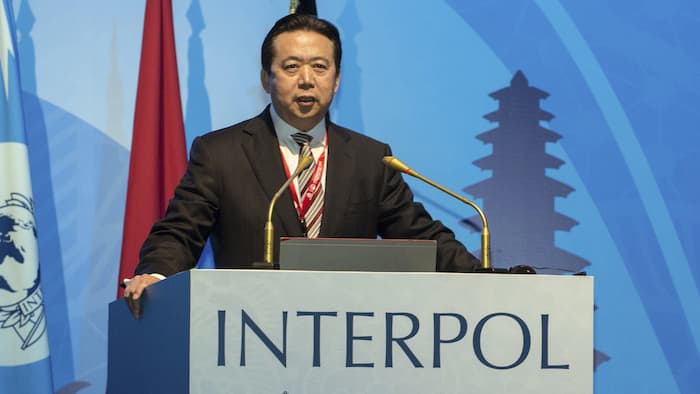Human rights groups protest over Interpol president’s appointment

Financial Times, 10 November 2016

Financial Times — A senior Chinese security official was named president of Interpol, the international police liaison organisation, drawing criticism from human rights groups who said it would help Beijing pursue dissidents abroad.
Meng Hongwei, China’s vice-minister of public security, was elected head of Interpol’s executive committee at a meeting on Thursday in the Indonesian island of Bali. It is the first time a Chinese official has held a position which determines Interpol policy.
France-based Interpol has no law enforcement powers or officers of its own, but acts to share information between police forces around the world. It does this by communicating so-called red notices between members that request a suspect who has crossed an international border be arrested and deported.
In practice, many such red notices are ignored; Interpol’s charter forbids it from being used in cases of a political, military, racial or religious nature. But some governments have sought to bend those rules to harass dissidents and opposition political figures. In addition, many countries will not extradite fugitives if there is a fear of harsh or unfair treatment.
Noting China’s record of pursuing dissidents abroad, human rights groups expressed concern at Mr Meng’s election.
“There is some evidence that the world police body’s system of sending arrest orders around the world has been exploited by repressive governments,” said Maya Wang, China researcher at Human Rights Watch, the advocacy group. “Putting the chief of a police force known for its human rights abuses in charge of Interpol certainly bodes ill for the organisation, and may further embolden such abusive use of the system.”
Nicholas Bequelin, east Asia director at Amnesty International, said: “In my view China has a history of trying to game the Interpol system … We’re concerned about the weakening of safeguards and that Interpol doesn’t get progressively turned into a political instrument.”
One example of abuse of the system is the case of Dolkun Isa, an ethnic Uighur dissident who fled to Germany in 1997. He has been accused of terrorism in China and has been pursued by Interpol red notices that have prevented him from travelling to countries such as India earlier this year.
Of about 100 red notices issued by China last year, a third resulted in suspects being returned.
Interpol’s executive committee, which Mr Meng will head for a four-year term, meets three times a year and sets organisational policy and direction. It comprises a total of 13 members from around the world.
However the organisation’s most powerful figure is secretary-general Jurgen Stock, a German police official.
“Interpol, guided by the best set of principles and mechanisms to date, has made a significant contribution to promoting international police co-operation,” Mr Meng said in a statement on Interpol’s website. “Interpol should continue to adhere to these principles and strategies, while further innovating our work mechanisms, in order to adapt to the changing security situation we see today.”
https://www.ft.com/content/3da20eba-a72c-11e6-8b69-02899e8bd9d1

